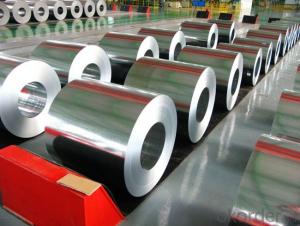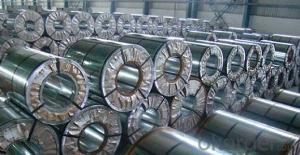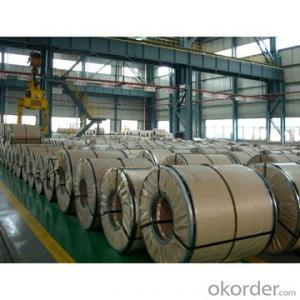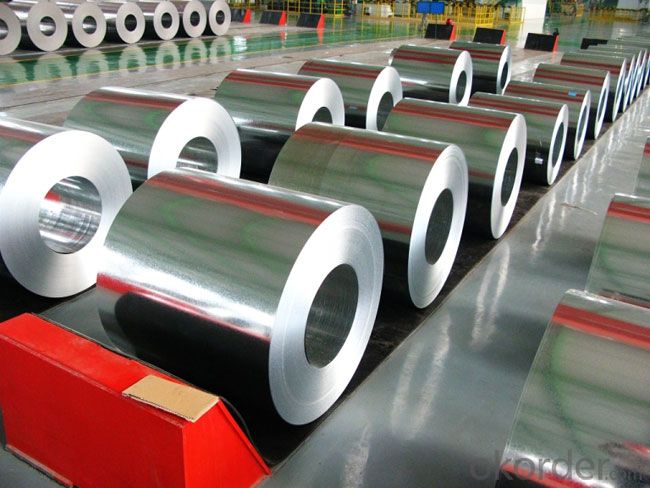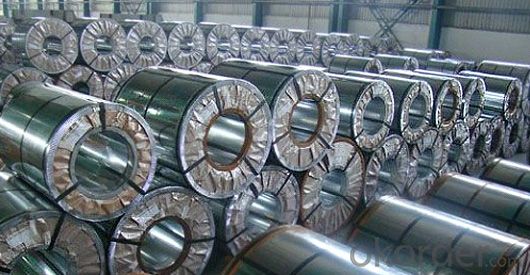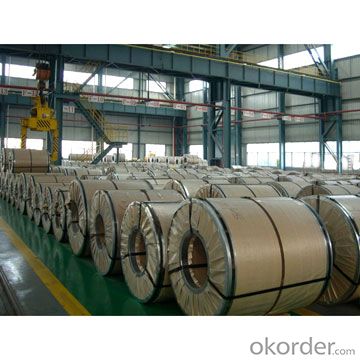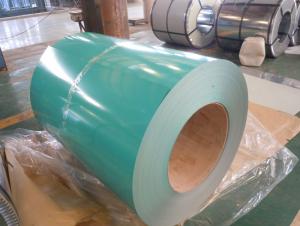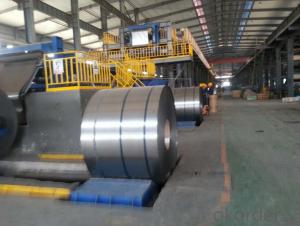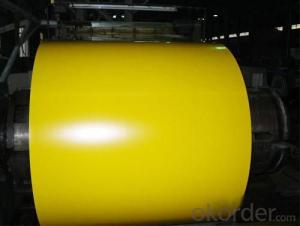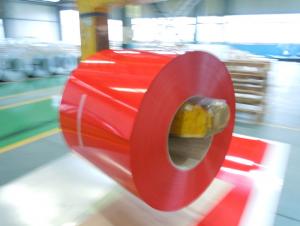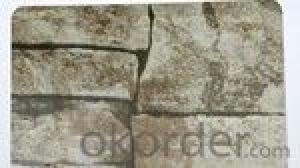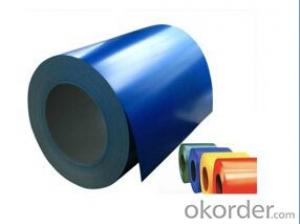Prepainted Galvanized Steel Coil for Building Decoration
- Loading Port:
- Qingdao
- Payment Terms:
- TT or LC
- Min Order Qty:
- 10 m.t.
- Supply Capability:
- 10000 m.t./month
OKorder Service Pledge
OKorder Financial Service
You Might Also Like
Prepainted Galvanized Steel Coil for Building Decoration
Main Structure of Prepainted Galvanized Steel Coil:
Thickness: 0.16~1.2mm
Zinc Coating: Z60~Z180
Coil ID: 508/610mm
Coil Wgt.: 2.5~8Mt
Specification for Prepainted Galvanized Steel Coil
PRODUCT | prepainted galvanized steel coil |
STANDARD | GB/T-12754: 2006, JIS3302, EN 10142, ASTM A653, JIS G3302, SGCC/SGCH, GB/T2518, European Standard, ASTM A792, JIS G3321, JIS G3317 |
BASE PLATE | Cold rolled steel sheet, hot dipped zinc coated steel sheet, hot dipped A-dx51d z100 galvanized steel coil coated steel sheet |
EQUIPMENT | Double coating double baking; three coating three painting |
CAPACITY | 500,000Mt/year |
SIdx51d z100 galvanized steel coilE | Thickness 0.16mm-1.2mm, width 700mm-1250mm |
dx51d z100 galvanized steel coilINC COATING | 60g-180g |
PAINT THICKNESS | Top:20+-5um, back:5-7um |
COIL WGT | 2.5Mt-8Mt |
COIL ID | φ508mm-φ610mm |
BASE SHEET | Cold rolled steel sheet, hot dipped zinc coated steel sheet (small, regular or zero spangle),hot dipped A-dx51d z100 galvanized steel coil coated steel sheet |
SURFACE PAINT | EP, PE, HDP, SMP, PVDF |
COLOR SERIES | RAL color number series |
SURFACE TYPE | Printed, embossed, corrugated |
FAQ
Q: How’s your service?
A:1. Offer customers 24/7 service, whenever you need us, we are always here for you.
2. Immediate response. Your any inquiry will be replied within 24 hours.
3. Support small order quantity, for the first time cooperation customers, we can send you less quantity for trial order.
4. Support third party inspection company to inspect and check the quality and quantity before delivery.
Picture:
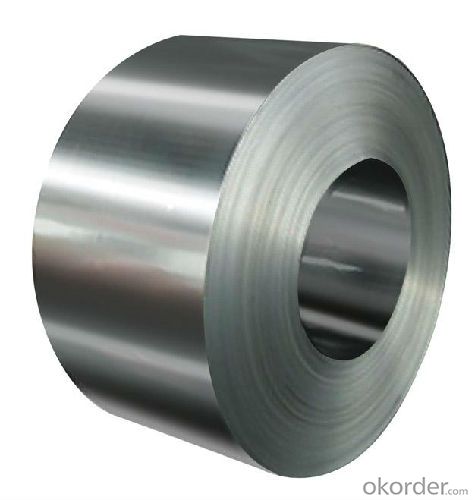
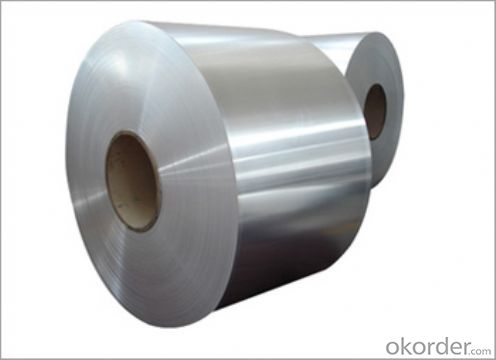
- Q: What are the dimensions of a typical steel coil?
- The dimensions of a typical steel coil can vary depending on the manufacturer and specific application, but common dimensions include thicknesses ranging from 0.015 inches to 0.5 inches, widths between 24 inches and 72 inches, and coil weights ranging from a few thousand pounds to over 50,000 pounds.
- Q: How are steel coils used in the production of medical equipment?
- Steel coils have various applications in the manufacturing of medical equipment. One way they are commonly used is in the production of surgical instruments. Scalpels, forceps, and clamps, for example, require a cutting edge that is both sharp and long-lasting. Steel coils are ideal for creating these edges as they can be easily shaped, hardened, and sharpened, ensuring precision and durability. Furthermore, medical devices like braces, orthopedic implants, and prosthetics often incorporate steel coils. These devices necessitate materials with exceptional strength and durability to provide support and stability to the body. Steel coils can be molded into different forms and sizes to meet the specific needs of patients, delivering the required support and functionality. Moreover, steel coils find application in the manufacturing of medical equipment such as MRI machines and X-ray systems. These machines rely on robust and dependable components to guarantee accurate imaging and diagnostics. Steel coils are integral to the construction of these machines as they provide stability and structural support, enabling precise and high-quality imaging. To summarize, steel coils are of utmost importance in the production of medical equipment as they offer strength, durability, and versatility. Whether it's surgical instruments, orthopedic devices, or diagnostic machines, steel coils are utilized to create dependable and high-performing medical equipment that ultimately enhances patient care and outcomes.
- Q: What exactly is surgical stainless steel made of (metals)? Does it contain nickel? If so, what % does it usually contain? I am deciding between surgical stainless steel piercings or titanium. Both same price and looks. I want to know which one is more hypo-allergenic and generally nickel free.
- surgical stainless steel is an austenitic steel containing 18-20% chromium and 8-10% nickel. and some proportion of molybdenum. The word 'surgical' refers to the fact that these types of steel are well-suited for making surgical instruments: they are easy to clean and sterilize, strong, and corrosion-resistant. The nickel/chrome/molybdenum alloys are also used for orthopaedic implants as aids in bone repair, and as a structural part of artificial heart valves and other implants. However, immune system reaction to nickel is a potential complication. In some cases today titanium is used instead in procedures that require a metal implant which will be permanent. Titanium is a reactive metal, the surface of which quickly oxidizes on exposure to air, creating a microstructured stable oxide surface. This provides a surface into which bone can grow and adhere in orthopaedic implants but which is incorrodible after implant. Thus steel may be used for temporary implants and the more expensive titanium for permanent ones
- Q: How are steel coils used in the production of steel washers?
- Steel coils are used in the production of steel washers by being uncoiled and fed into a stamping machine. The machine then cuts and shapes the steel into individual washer blanks. These blanks are then further processed and finished to create the final steel washers.
- Q: How are steel coils used in the manufacturing of food processing equipment?
- Steel coils are used in the manufacturing of food processing equipment as they provide a strong and durable material for constructing various components such as conveyor belts, mixing blades, and cutting tools. The coils are typically shaped, cut, and molded to create specific parts that can withstand high temperatures, heavy loads, and corrosive conditions commonly encountered in food processing.
- Q: Im looking to learn guitar and i was wondering if steel strings are too hard to use as a beginner. I am also self teaching so any good lesson books/starting guitar recommendations are welcome !! thanks.
- Steel strings are fine for a beginner. I learned to play on Steel strings and I have always preferred them to nylon strings.
- Q: I am planning to buy a Walther P22. I have liked the Pistol's performance-superb.The only confusion that I have is about the Polymer Frame.Just for this I may shift to someother manufacturer.Are Polymer Frames better than Steel in durability and lifespan.Walther says YES.Any comments on this...Practical users...Thanks in advance
- On okorder under the Walther section. I know the P22 will hold up well with normal maintenance for 5000 rounds. I can't tell you from practical experience if it will still be great at 10000 since mine hasn't gotten that far yet.
- Q: I wasn't expecting much because i knew it was cheap (Trying to avoid high prices) But anyway i cut a few bottles and cans and i noticed the very edge of the blade was starting to bend. I ignored it and tried it on a 3 inch limb, and the whole blade bent sideways where the limb hit it.I heard cold steel was supposed to be top quality and I wanted to know how durable their swords are and if they're worth it. Thanks!
- O.Adequate. First and fundamental it takes coaching and observe to use a katana. There may be a little bit component known as 'system'. You need to to search out an trainer. Except you're a fairly significant man, an O Katana is conveniently too large for you. Weapons of this way were not used for dueling, they have been further anti-cavalry weapons. As a substitute cumbersome for one in the direction of one combat. The cold steel katanas are not very regularly correct varieties of a japanese sword - missing finesse and poorly balanced. They are going to take a beating though and it seems like that's what you probably giving it. Severely, you possibly more often than not a hazard to your self and possible others round you - to search out an teacher.
- Q: I am looking for steel. I need a lot.
- Not sure what the question is. Oh...and this isn't a place for classified ads.
- Q: How is steel different than iron?How many different kinds of steel are there?What type is the strongest?Which type is the weakest?
- As first answer says, if you look at the number of commercial steel alloys available and consider that any given alloy can be heat treated to a wide range of physical properties, there are thousands and thousands of potential combinations. Technically, steel is an alloy of Fe and C but there are Fe-C alloys that are called cast irons, not steel, and... there are lots of alloy steels which have significant amounts of other elements added like Cr, Ni, Nb, V, Mo, etc. Fe alloys that have a lot of Cr and or Ni added are called stainless steels and there are dozens of them and many of them can be heat treated to produce a wide range of properties. As far as the strongest or the weakest, you have to get really specific about exactly what you mean because some steels are designed for room temperature properties, some are designed for elevated temperature properties, some for static loads, some for impact loads, some for wear resistance, etc, etc.. Steels make up the largest family of metal alloys (by weight and by volume) that humans use. There are a number of reasons for this but the big reasons include: 1) there is a LOT of iron on earth 2) it is relatively cheap to produce 3) you can easily change the physical properties over a every wide range. As an example... you can take a piece of steel that is so brittle it will shatter if you drop it on the floor and heat treat it so you can bend it like a pretzel without cracking and then heat treat it again to make it very strong and tough (resistant to fracture).
Send your message to us
Prepainted Galvanized Steel Coil for Building Decoration
- Loading Port:
- Qingdao
- Payment Terms:
- TT or LC
- Min Order Qty:
- 10 m.t.
- Supply Capability:
- 10000 m.t./month
OKorder Service Pledge
OKorder Financial Service
Similar products
Hot products
Hot Searches
Related keywords
